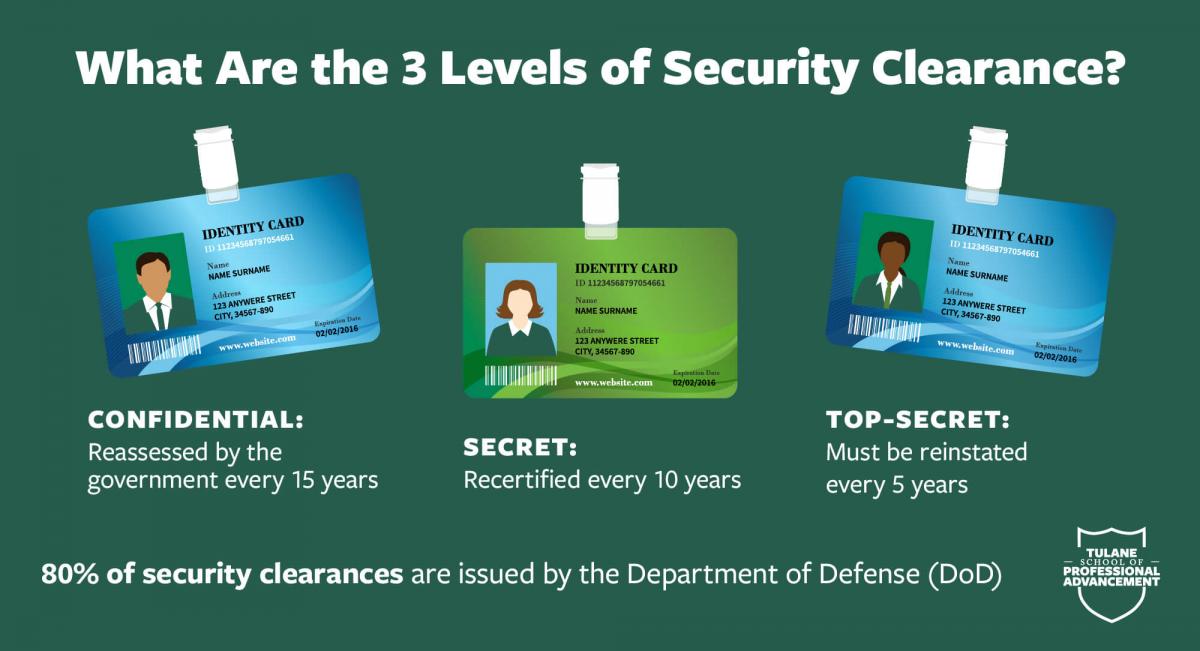Completely funded by the government, personnel security clearances determine if individual entities are eligible for access to classified information, and this process involves three major steps:
- An investigation request
- The Personnel Security Investigation (PSI) usually conducted by the Office of Personnel Management (OPM)
- Adjudication (The decision)
Facility Security Clearances
Government contracts aren't limited to individuals seeking employment with the government—a contractor or other business entity may be contracted by the federal government, and the services rendered may require access to classified information. In this case, companies may also be required to guard classified information at their facility. If they have to safeguard classified information, this must be preceded by U.S. government approval.
Limited Access Authorization
Per Executive Order 12968, non-U.S. citizens can also receive a security clearance and work with government entities. Limited Access Authorization (LAA) is usually granted in unique situations when a non-U.S. citizen has expertise or a skill that’s urgently needed. Before an LAA is granted, the government must prove that a current clearance holder isn't available. LAAs can only be granted at the Secret clearance level or below.
What Are the Different Levels of Security Clearances?
Not every clearance holder has access to the same information. Some clearances only grant access to a particular facility or information about a specific project for a government agency. There are levels of secret clearance that dictate what information needs to be known by the clearance holder. Most government agencies have three levels of security clearance. While the unauthorized disclosure of any level of information disclosed could cause damage to national security, the risk of danger becomes more serious the higher the level of clearance:
- Confidential: In this case, the position typically requires only basic access to facilities, information, or systems, which can be granted through the lowest level of security clearance. The individual's clearance eligibility is re-investigated every 15 years to keep authorization active.
- Secret: At this middle tier of clearance levels, secret clearances are re-investigated slightly more frequently, every 10 years. As the investigation to grant a clearance becomes more thorough at higher levels, more candidates may be deemed ineligible through the discovery of criminal activity not reported by public record.
- Top Secret: This type of security clearance is reserved for positions that require access to very sensitive information and systems. Candidates must undergo a background check and field check, Single Scope Background Investigation (SSBI), and potentially a polygraph test. This clearance is re-investigated every five years.

Who Grants Security Clearances?
Varying United States government agencies grant security clearances, most commonly the Department of Homeland Security, Department of Defense, Department of Justice, Department of Energy, and Central Intelligence Agency. In fact, the U.S. Department of Defense (DOD) issues more than 80% of security clearances.
What Are the Steps of Getting a Security Clearance?
If you're actively looking for a new job or your first job, you should know that the clearance process can last anywhere from three months to a year. You cannot initiate the clearance process, a government agency willing to sponsor you after confirming you meet the job's qualifications. In the event that there isn't a Background Investigation (BI) file on you, you'll need to submit Standard Form 86 (clearance documentation) to the hiring agency you're working with. You must pass the background check to be hired.
Why Would a Security Clearance Be Denied?
You can't obtain a security clearance from the U.S. government if you have a criminal history. The following can disqualify you from obtaining a secret clearance at any level:
- A record of incarceration for one or more years
- Refusal to turn over foreign passport
- Illegal use of drugs, alcohol addiction, or any form of substance abuse
- Lying or attempting to falsify information pertaining to your background check
- Dishonorable discharge or dismissal from the military
Build a Strong Foundation With SoPA to Help Protect Your Community
Tulane School of Professional Advancement is ready to support you in taking the first step toward a rewarding and impactful career in government. Our award-winning degree programs offer flexible online undergraduate and graduate degrees that were designed for working professionals. Browse our Emergency & Security Studies and Information Technology program pages to learn more about the opportunities in government you can pursue through a Tulane SoPA education. Contact our admissions team today to see which program is best suited to help you meet your career goals.






